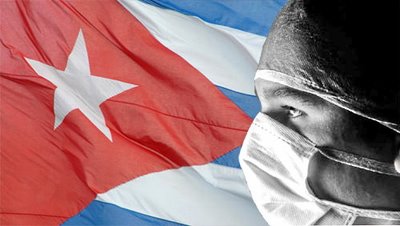Over 80,000 Lives Saved by Cuba's Henry Reeve Contingent
ACN | Thursday, 22 September 2016 | Click here for original article

HAVANA, Cuba, Sep 19 (acn) The Henry Reeve International Contingent of Physicians Specialised in Disaster Situations and Serious Epidemics has saved more than 80,000 lives in almost twenty countries where more than 7,000 Cuban voluntary workers have offered their services.
The head of the Department of International Cooperation of the Central Unit of Medical Cooperation (UCCM by its Spanish acronym), Dr. Michele Santana, told ACN that, since its creation 11 years ago, these brigades have benefited more than 3.6 million patients.
This "army of white coats" has performed some 31,000 surgeries, more than 2,000 deliveries and rehabilitated 548,000 people in that period, she stated.
Dr. Regla Angulo, UCCM director, recalled the emergence of Henry Reeve Contingent on September 19, 2005, at the initiative of President Fidel Castro after the battering of the U.S. city of New Orleans by Hurricane Katrina.
Brigades composed of health workers, including physicians and nurses have been present in countries including Guatemala, Pakistan, Indonesia, Bolivia, Peru, Haiti, Mexico, China, El Salvador, Chile, Nepal, Sierra Leone and Ecuador, where they have boosted Cuba's reputation with their altruism and solidarity.
For the remarkable results of these men and women willing to save lives anywhere in the world, the annual conference of the Norwegian Union, summoned in Trondheim last year, unanimously approved to propose the Henry Reeve Contingent as candidate for the 2015 Nobel Peace Prize.
In the opinion of Dr. Cristian Morales, Representative in Cuba of the Pan-American and World Health Organizations, the "Henry Reeve" is always willing and ready to help the people of Latin America and the Caribbean and others around the world when facing emergency situations and disasters.
One of the most remarkable missions where the Caribbean nation has been present was in the fight against the Ebola virus in West Africa, where 256 Cuban voluntary workers gave a step forward at the risk of their own lives.
One of these workers was Nurse Jorge Fonseca, a specialist in intensive care, who proudly said that having been part of the first group of that brigade, specialized in dealing with disasters and severe epidemics, was an honor for him.
Cabreja has offered his services in Pakistan, Venezuela, in the fight against Ebola in Sierra Leone, West Africa, and more recently in Ecuador to assist earthquake victims.






